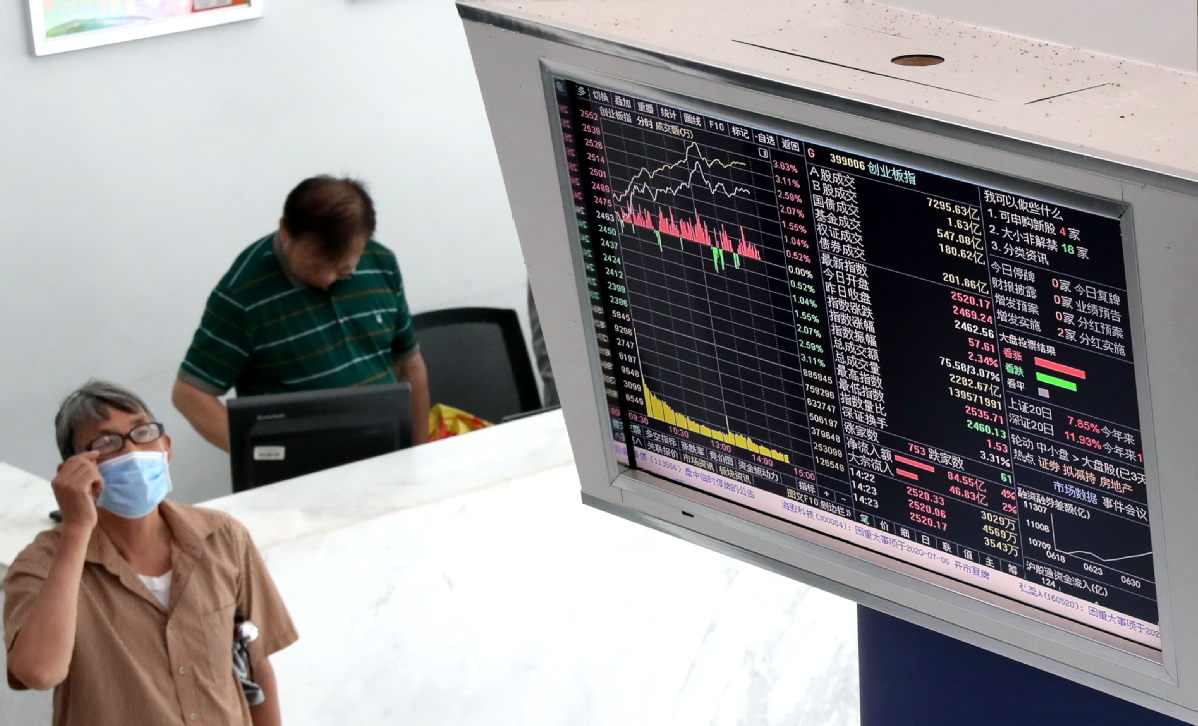Deepened reform heralds extended uptrend


"As China's economic growth is more reliant on innovation in consumption and technologies, more financial resources will be allocated to emerging industries and companies. To cater to their development, a new age of direct financing and equity financing will be ushered in," he said.
Xun Yugen, chief strategist of Haitong Securities, said there was a time when the property industry used to support the rapid growth of China's economy. As bank loans are the major financing channel for property developers, indirect financing has thus made up most part of the country's financing structure. Fixed-income financial products were also more favored by individual Chinese investors.
In China, at least 60 percent of household assets are taken up by property investment, while the ratio is only 25 percent among US families. As a result, stock investment takes up only 2 percent of Chinese household investment. The corresponding figure is more than 33 percent in the United States, according to Haitong Securities.
That is why, on Jan 3, the China Banking and Insurance Regulatory Commission said that more household savings should be guided into the Chinese capital market.
"As China enters the informatization age, the country's economic growth will be driven by service companies providing technologies and consumer goods. Gradually, the property market will weigh less on the economy. Therefore, direct financing best represented by equity financing will become the mainstream. Chinese household savings will get more and more funneled into equity assets, which will be translated into adequate liquidity in the stock market," said Xun.
During the World Economic Forum annual meeting held in Davos, Switzerland, in late January, Fang Xinghai, vice-chairman of the China Securities Regulatory Commission, said the size of direct financing in the Chinese capital market is relatively small at the moment, and can meet 10 percent of the total financing demand. In this sense, the need to enlarge the scale of direct financing will be stressed in the development of the Chinese capital market.
A number of favorable policies to promote direct financing have been introduced this year. China's central bank announced on July 1 a half-percent cut in the interest rate of financial stability refinancing loans to 1.75 percent.
Major progress has been pushing forward the National Equities Exchange and Quotations (NEEQ), an equity trading platform for small-to medium-sized enterprises, to increase the scale of financing and facilitate more mergers and acquisitions.
Companies listed on the NEEQ will further diverge on three different tiers (base, innovation and select). The select tier imposes the strictest standards. Public offering via the NEEQ select tier will start this week.
"The regulators will attach more importance to direct financing, which will sustain companies' long-term development. Therefore, the policies regarding refinancing, restructuring and private placement earlier this year are all conducive to direct equity financing," said Hu Bo, a fund manager at Shenzhen Rongzhi Investment Consultant.
"The development of direct financing will be slow. But in the long run, the capital market will thus be able to seek sustained development. The A-share market will witness a long bull market which deserves a place in history. Listed companies will put up a diverse performance, with quality companies gaining more capital support," he said.
Xu Weihong, an academic committee member of the Pangoal Institution, a Chinese public policy think tank, made field trips to the Yangtze River Delta region and Pearl River Delta region over the past two months to study the public companies there. He understood that the Chinese entrepreneurs are well aware of the risks implied in economic cycles over the 40-year reform and opening-up, and thus well prepared for all the other macroeconomic risks.
"The A-share market is not lacking in quality companies. The government should make necessary efforts to advance supply-side reform. In this sense, direct financing can better serve the real economy and the bull market can last longer," he said.




































